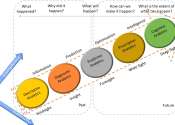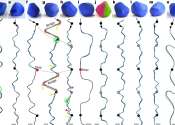Researchers create first programmable, logical quantum processor
Harvard researchers have realized a key milestone in the quest for stable, scalable quantum computing, an ultra-high-speed technology that will enable game-changing advances in a variety of fields, including medicine, science, ...
Dec 21, 2023
0
282









